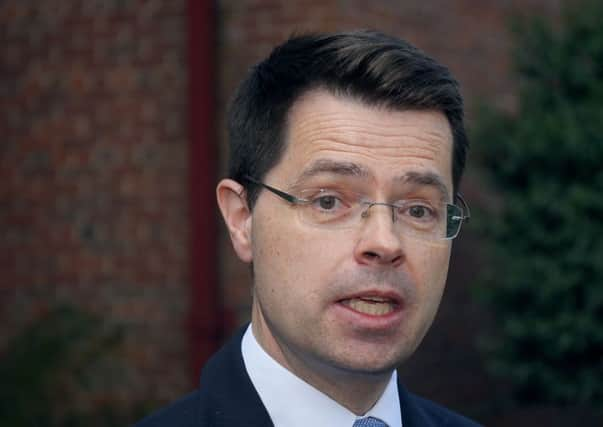Decision on future of power-sharing talks this week


With all sides acknowledging the chances of a compromise deal are slim when parties are focused on an adversarial race for votes, there is a growing expectation that the process may be paused or significantly scaled back until after June 8.
The matter will be discussed on Thursday when the leaders of the main parties meet Northern Ireland Secretary James Brokenshire and Irish Foreign Minister Charlie Flanagan at Stormont Castle, Belfast.
Advertisement
Hide AdAdvertisement
Hide AdMr Brokenshire was at Westminster today setting out his plans to take financial decisions to stabilise Stormont’s rudderless administration.
He made clear that if no government is in place by the latest talks deadline of June 29, he will intervene to effectively set Stormont’s budget for the rest of the financial year.
It would include a 2.5% cut to spending on education.
SDLP leader Colum Eastwood said it was time to drop the “pretence” that anything was being achieved by continuing to talk.
“There is nothing worse than pretending to be negotiating,” he said.
Advertisement
Hide AdAdvertisement
Hide Ad“The idea that we are going to get a deal in these current circumstances is just not credible.”
Mr Eastwood laid the blame at Theresa May’s door, claiming her decision to call the election had torpedoed any chance of an agreement in the short term.
Sinn Fein’s Gerry Kelly levelled a similar charge at Mrs May.
“The fact the British prime minister is either indifferent to what happens here or actually moved deliberately in terms of what happened here we are now left with a difficulty in trying to move forward at all,” he said.
Advertisement
Hide AdAdvertisement
Hide Ad“People understand how difficult it would be to come to solid conclusions in the middle of an election, but the British prime minister didn’t seem to worry about that.”
The fate of power-sharing rests on whether the two main parties – Sinn Fein and the DUP – can reach a consensus.
Sinn Fein demands for legislative protections for Irish speakers, an end to the Province’s ban on gay marriage and the implementation of a Northern Ireland-specific bill of rights are among the issues of dispute.
The republican party has accused the DUP of preventing the formation of a “rights-based” government.
Advertisement
Hide AdAdvertisement
Hide AdBut the DUP has dismissed this, claiming Sinn Fein is focused only on the wish-list of its own supporters, and is failing to appreciate that others want movement on other issues.
The DUP is seeking protections for Ulster Scots speakers and has also pressed for the introduction of a military covenant in Northern Ireland, a series of policies that define the state’s obligations to its armed services.
The Ulster Unionists, SDLP and Alliance Party are also involved in the protracted negotiations, along with the UK and Irish governments.
The proposed departmental budgetary allocations Mr Brokenshire will impose if a deal does not materialise are based on financial assessments by senior civil servants.
Advertisement
Hide AdAdvertisement
Hide AdThe civil servants in turn were guided by the general policy directions of the last ministerial Executive, before it imploded.
The Department of Health would receive a rise in spending at the expense of other frontline departments.
Mr Brokenshire told the Commons he did not wish to intervene and would rather local politicians made such spending decisions.
“My point remains that that does not need to be the outcome,” he said.
Advertisement
Hide AdAdvertisement
Hide Ad“The outcome that we want to see is an Executive being formed, the outcome that we want to see is devolved government being put into place, making decisions within Northern Ireland for the people of Northern Ireland.”